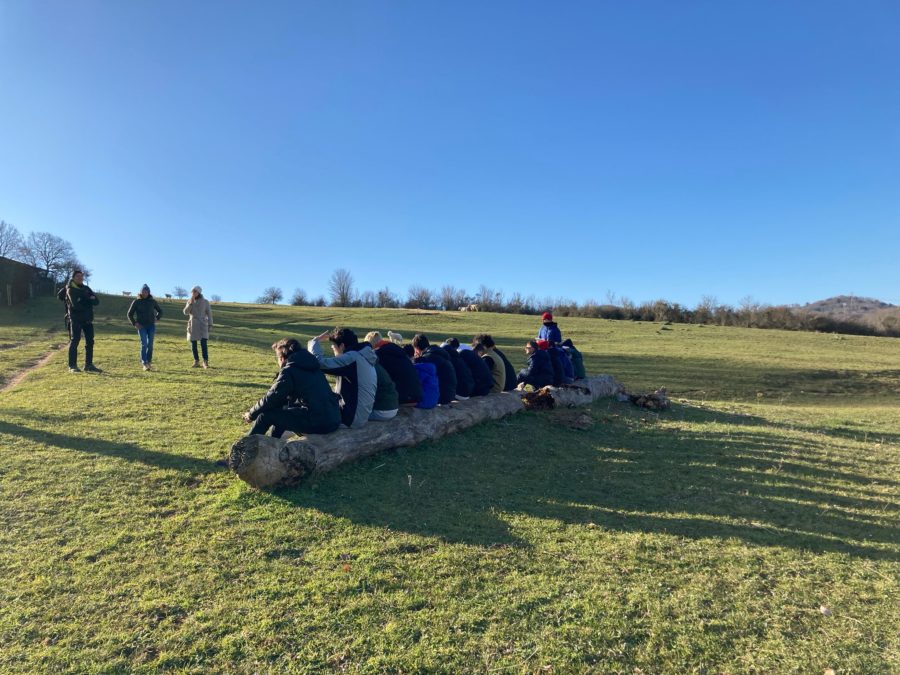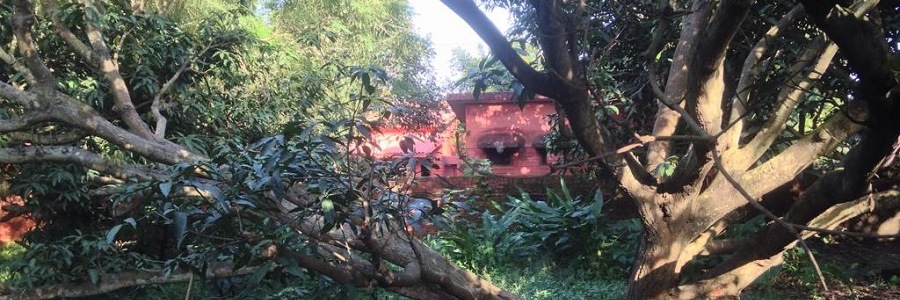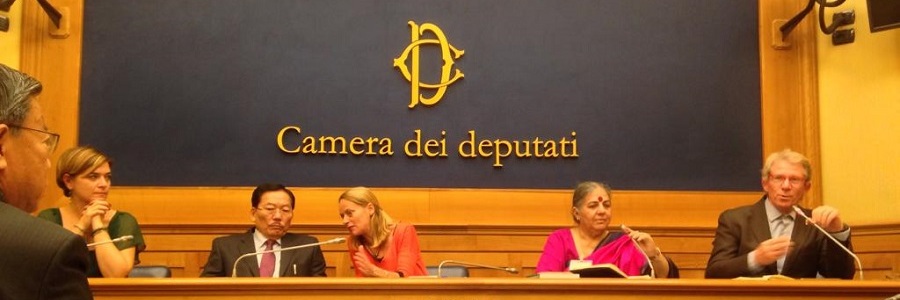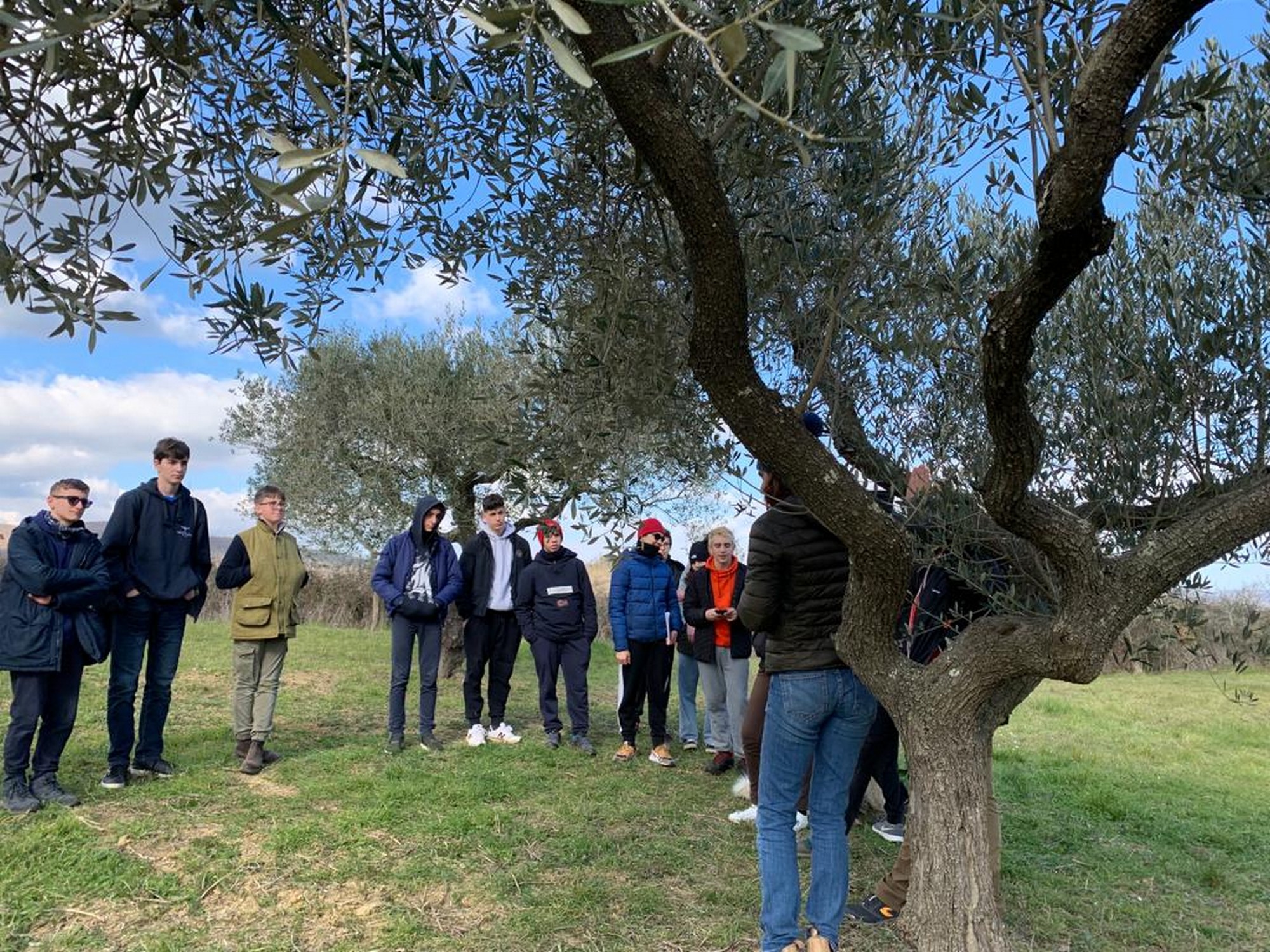
Navdanya International works for the promotion of food sovereignty, agroecology, solidarity economies and fair and healthy agri-food systems. Navdanya International works both through awareness-raising campaigns, international action and at the local level through supporting biodiversity-based agroecology, local food systems, and movements fighting for new food policies.
The education of citizens, and in particular the younger generations, about the importance of biodiversity and ecological regeneration is of utmost importance. This means promoting the knowledge and practices that ensure quality production that works in harmony with Nature, and does not deplete the life of ecosystems. As Vandana Shiva, president of Navdanya International and founder of the Earth University, puts it, “Nothing like education determines a community’s ability to grow and develop prosperously by making diversity an irreplaceable resource; we need education to heal the Earth. We need to work with seeds and soil to regenerate the Earth.”

The Navdanya Earth University has been teaching students from all over the world for almost forty years about the value of biodiversity and the importance of safeguarding seeds. Today, organic farmers who produce wholesome food while protecting the environment, are the best guardians of local biodiversity. By avoiding the use of synthetic, chemical fertilisers and pesticides, choosing to use organic seeds, integrating different crops, practising rotation and restoring fertility to the soil, organic farmers take care of our health, the food we eat, the waters, and the forests.
In this light, Navdanya International has launched the Biodiversity is Life Project in the Bracciano and Martignano Natural Park, in the Province of Rome, Italy. The project involves at least seventy young people between the ages of 13 and 18 in an experiential education and awareness-raising programme on the protection of biodiversity. The project activities involve the active participation of young people in organic farm activities (such as preserving and planting seeds), and aims to bring the younger generations closer to good agricultural practices for the protection of the environmental heritage of the area.

The training project is part of a broader mobilisation underway in the area for the creation of a biodistrict. Navdanya International actively contributed to the creation of the committee for the promotion of a biodistrict in the entire park area, promoted also by citizens, organic farmers and local associations. The biodistrict model is emerging as an interesting field of ecological and social experimentation for the promotion of organic farming and for the collective and horizontal planning of the territory. Over the years, Navdanya has participated in the creation of ‘Poison Free’ zones and areas devoted to organic farming, such as the case of Sikkim, the first state in the world to have made a transition to a 100% organic model. Sikkim was honoured with the Future Policy Award, the prize dedicated to the best global policies for agroecology organised by the FAO together with the World future council and Ifoam organics international. A press conference was held by Pawan Kumar Chamling, Chief Minister of the Indian state of Sikkim, and Dr. Vandana Shiva in the Italian Parliament.

As Navdanya has shown in the ‘Food for Health’ Manifesto, we are faced with a complex crisis that affects society and its structures, culture, the economy and the ecological sphere of the living, a crisis that is the result of an economic, political and productive model that has severed the deep ties with the places where we live, with the land from which the food we eat is produced, with our communities and local networks, and with the water reserves that every day allow us access to water, the primary good for our survival. The responsibilities of industrial agriculture and large-scale organised distribution in the destabilisation of ecosystems and the loss of biodiversity are becoming more and more evident every day, both globally and locally. Intensive chemical-based agri-food systems are contributing to what scientists have called the sixth mass extinction: the risk of extinction of more than a million species.

In the face of a model, still based on an extractive and productivist mentality, that continues to propose temporary and ineffective solutions, it is necessary to promote a model that starts from care. From ecological and social regeneration practices that from the local scale can, through national and international alliances and synergies, reach global impacts. Supporting organic farms that operate in respect and protection of the territory’s biodiversity, informing citizens about the health risks related to industrial food, educating the younger generations to respect nature, and collaborating with local associations and movements are some of the determining factors to start a transition towards a new ecological paradigm.
